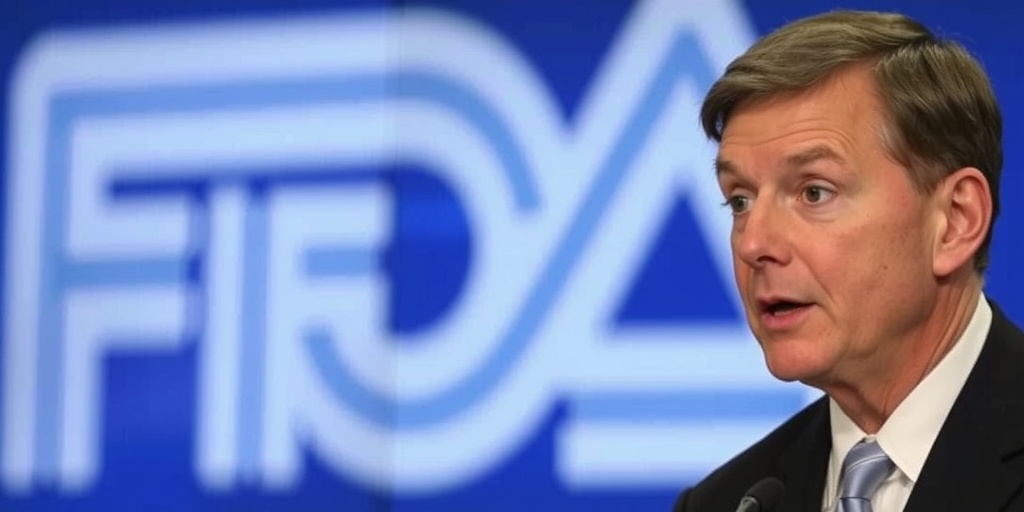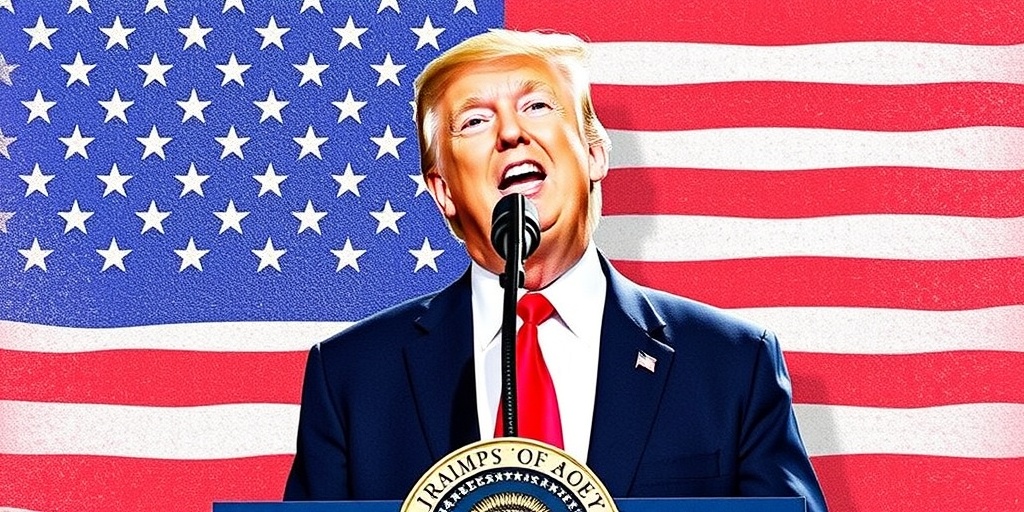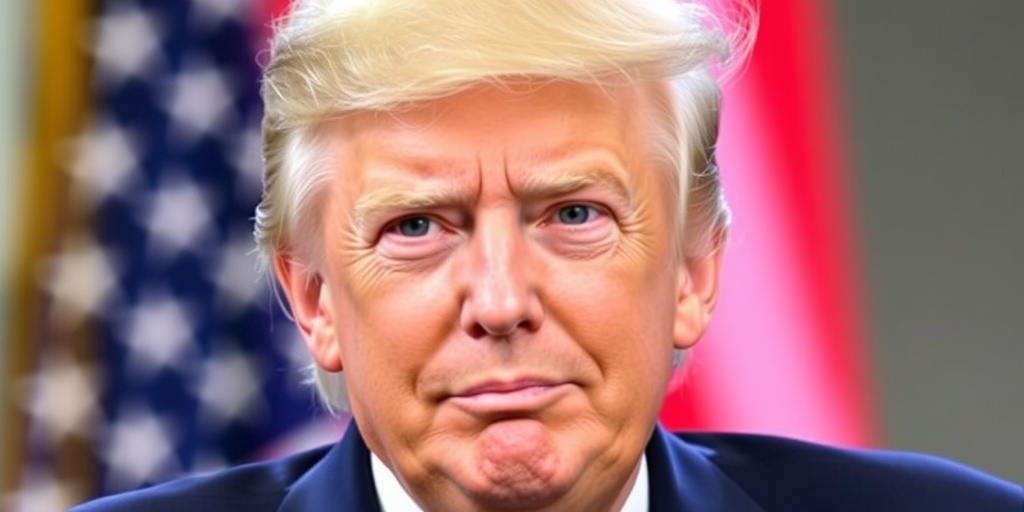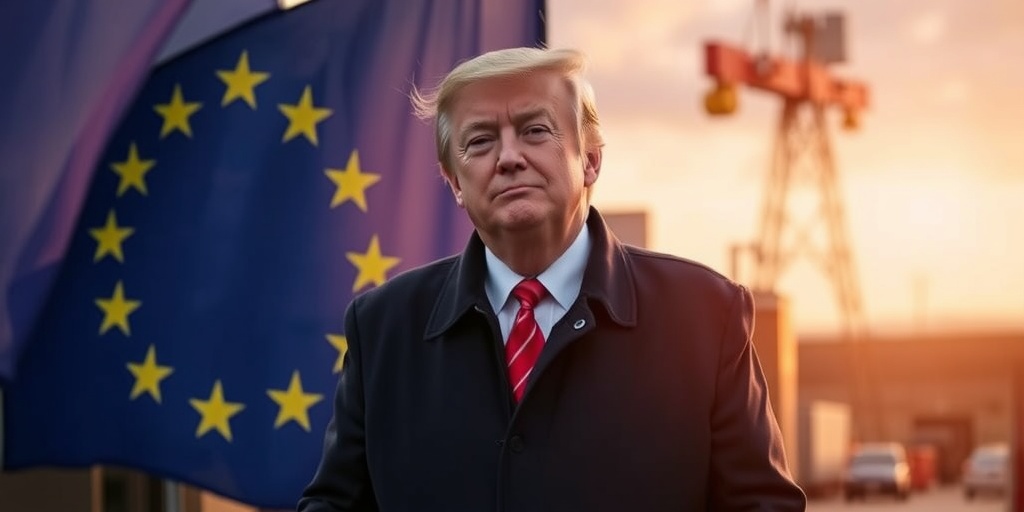Now Reading: U.S. Tries to Soothe European Concerns Over Trump’s Anti-Diversity Policies
-
01
U.S. Tries to Soothe European Concerns Over Trump’s Anti-Diversity Policies
U.S. Tries to Soothe European Concerns Over Trump’s Anti-Diversity Policies

U.S. State Department Faces Backlash Over Diversity Compliance Letters Sent to European Contractors
The U.S. State Department is embroiled in a diplomatic controversy this week, responding to increasing tensions across Europe following the issuance of letters from American embassies in various countries. These letters directed foreign contractors with existing contracts with the U.S. government to certify their compliance with President Trump’s controversial policies that aim to dismantle diversity programs.
The embassies in nations such as France, Spain, Denmark, and Belgium have triggered significant concern and backlash among European companies and officials. Many perceive this as a pressure campaign from the Trump administration attempting to impose anti-diversity policies on countries that have long embraced inclusion and equality in their workplaces. European leaders have expressed their dissatisfaction with these letters, which they see as an overreach of U.S. policies into their national and corporate practices.
In an effort to mitigate the fallout, the State Department issued a clarification late Tuesday, stating that the compliance requirement applies only to companies that are "controlled by a U.S. employer" and employ U.S. citizens. This clarification appears to contradict the embassy letters, which indicated that Trump’s directives would affect all contractors and suppliers of the U.S. government, regardless of their nationality or location of operation.
The U.S. government reiterated that the embassy letters sought only to ensure contractors and grantees worldwide were compliant with applicable U.S. federal anti-discrimination laws. According to the State Department, "There is no ‘verification’ required beyond asking contractors and grantees to self-certify their compliance." The statement emphasized that the letters aimed to add a simple paperwork requirement rather than impose stringent new constraints on foreign companies.
This incident marks just one of many contentious actions taken by the Trump administration, which has already put European officials on edge due to ongoing trade tensions. Mr. Trump is poised to announce potential tariffs against several countries, including some of the U.S.’s largest trading partners, adding to the existing friction between the U.S. and Europe.
While the total number of companies impacted by the letters remains unclear, the Belgian government has taken a proactive stance in lodging a formal protest with the U.S. embassy. Belgian officials have expressed deep concern over what they perceive as coercive tactics by the U.S. to compel European companies to abandon their diversity, equity, and inclusion initiatives.
Maxime Prévot, Belgium’s deputy prime minister and foreign affairs minister, emphasized the need for the U.S. embassy to abide by Belgian laws regarding these actions. He warned that if contracts were terminated solely based on a company’s commitment to diversity and inclusion, such actions could potentially violate the Vienna Convention on Diplomatic Relations.
The pronouncements from the Trump administration have caused fear and confusion among corporate leaders in the United States and have stirred complications for firms operating in Europe. Notably, the push to enforce these policies abroad has encountered significant resistance in countries such as Italy, which have historically prioritized robust labor rights and protections for workers.
For years, companies across Europe have worked diligently to enhance the representation of women, minorities, and individuals with disabilities within their workforces, aligning their employment practices with broader societal goals. The imposition of U.S. policies contradictory to these efforts has drawn stern criticism from various quarters.
In Denmark, Morten Bødskov, the industry minister, characterized the embassy letters as an attempt to impose what he described as an "American trade barrier." He further asserted that Danish and European firms bear a significant responsibility for promoting diversity and that existing European regulations aim to enhance this responsibility.
The response from France has been notably unified among government, corporate, and labor leaders. During a meeting convened to address the implications of these letters, French companies expressed their concerns to government officials. Laurent Saint-Martin, France’s foreign trade minister, vowed to protect companies from U.S. policies that could compel them to forsake their diversity commitments, which are in accordance with French and European laws.
Patrick Martin, president of France’s most prominent employers’ association, Medef, echoed these sentiments, stating that French companies "cannot give in" to what he perceives as a Trump-led effort to dominate the global economy and impose American values.
Additionally, the leading trade union in France, the C.F.D.T., has urged French companies to resist compliance with the U.S. directive, calling the act of filling out the certification form an act of submission to the Trump administration’s demands.
As the U.S. continues to navigate this diplomatic storm, the intricacies of international law, national sovereignty, and corporate governance are likely to remain in sharp focus, raising critical questions about global cooperation and compliance in an era marked by stark ideological differences.
Stay Informed With the Latest & Most Important News
Previous Post
Next Post
-
 01New technology breakthrough has everyone talking right now
01New technology breakthrough has everyone talking right now -
 02Unbelievable life hack everyone needs to try today
02Unbelievable life hack everyone needs to try today -
 03Fascinating discovery found buried deep beneath the ocean
03Fascinating discovery found buried deep beneath the ocean -
 04Man invents genius device that solves everyday problems
04Man invents genius device that solves everyday problems -
 05Shocking discovery that changes what we know forever
05Shocking discovery that changes what we know forever -
 06Internet goes wild over celebrity’s unexpected fashion choice
06Internet goes wild over celebrity’s unexpected fashion choice -
 07Rare animal sighting stuns scientists and wildlife lovers
07Rare animal sighting stuns scientists and wildlife lovers





















